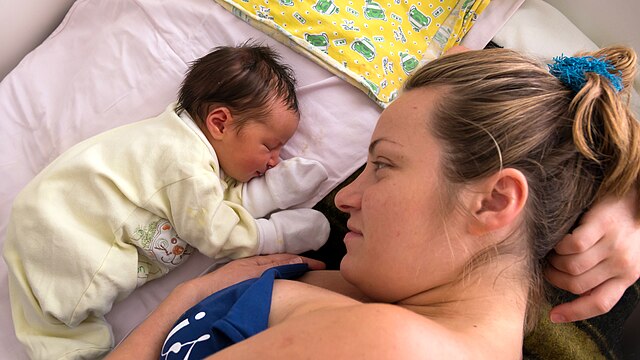Introduction
While therapy and support groups are essential components of treatment, medication can also play a significant role in alleviating symptoms and helping mothers navigate through this challenging period. In this article, we’ll delve into the various medications commonly used to treat PPD, their mechanisms of action, and their effectiveness, providing insights into how they can contribute to a mother’s journey towards recovery. It’s important to note that the effectiveness of these medications can vary from person to person, andfinding the right medication and dosage may require some trial and error. Additionally, medication alone may not be sufficient, and it’s often recommended to combine pharmacotherapy with therapy and lifestyle changes for comprehensive treatment.
Role of Medication
- Selective Serotonin Reuptake Inhibitors (SSRIs):
- Mechanism: SSRIs are a class of antidepressant medications commonly used to treat PPD. They work by increasing the levels of serotonin in the brain, which can improve mood and alleviate symptoms of depression. Examples of SSRIs include sertraline (Zoloft), fluoxetine (Prozac), and escitalopram (Lexapro). Serotonin plays a key role in regulating mood, so boosting its levels can help alleviate symptoms of depression.
- Effectiveness: SSRIs are considered a first-line treatment for PPD due to their efficacy and relatively mild side effect profile. Common SSRIs used in PPD treatment include sertraline (Zoloft), fluoxetine (Prozac), and escitalopram (Lexapro).
- Serotonin-Norepinephrine Reuptake Inhibitors (SNRIs):
- Mechanism: SNRIs are another class of antidepressants that may be prescribed for PPD. In addition to increasing serotonin levels, SNRIs also affect norepinephrine, another neurotransmitter involved in mood regulation which may offer additional benefits in managing depressive symptoms. Venlafaxine (Effexor) and duloxetine (Cymbalta) are examples of SNRIs that have shown efficacy in treating PPD symptoms.
- Effectiveness: SNRIs such as venlafaxine (Effexor) and duloxetine (Cymbalta) have shown efficacy in treating PPD, particularly in cases where SSRIs have been ineffective or poorly tolerated.
- Tricyclic Antidepressants (TCAs):
- Mechanism: TCAs also work by inhibiting the reuptake of serotonin and norepinephrine. Additionally, they block certain receptors in the brain, which may contribute to their antidepressant effects.
- Effectiveness: While less commonly prescribed than SSRIs or SNRIs, TCAs like nortriptyline (Pamelor) and amitriptyline (Elavil) can be effective in treating PPD, especially in cases where other medications have failed.
- Atypical Antipsychotics:
- Mechanism: These medications work differently from SSRIs and SNRIs but can still be effective in treating PPD. Bupropion (Wellbutrin) is an example of an atypical antidepressant that may be prescribed for women who do not respond to other medications or who experience side effects with SSRIs or SNRIs. Atypical antipsychotics modulate dopamine, serotonin, and norepinephrine levels in the brain, contributing to their mood-stabilizing effects.
- Effectiveness: In severe cases of PPD or when there are psychotic features present, atypical antipsychotics such as quetiapine (Seroquel) or aripiprazole (Abilify) may be prescribed either alone or in combination with antidepressants.
- Benzodiazepines:
- Mechanism: In some cases, women with PPD may also experience significant anxiety symptoms. Benzodiazepines such as lorazepam (Ativan) or buspirone (Buspar) may be prescribed to alleviate these symptoms, either alone or in combination with antidepressants. Benzodiazepines enhance the activity of the neurotransmitter gamma-aminobutyric acid (GABA), leading to sedative and anxiolytic effects.
- Effectiveness: While benzodiazepines like lorazepam (Ativan) or clonazepam (Klonopin) may provide short-term relief from anxiety and agitation associated with PPD, they are typically used cautiously due to the risk of dependence and sedation.

Conclusion
Medication can be a valuable tool in the treatment of postpartum depression, especially for women with moderate to severe symptoms or those who do not respond to other forms of treatment. However, it’s essential to work closely with a healthcare provider to find the right medication and dosage that works best for each individual. With proper treatment and support, women can overcome postpartum depression and emerge stronger, healthier, and better equipped to care for themselves and their families.
If you or someone you know is struggling with postpartum depression, know that help is available. Speak to a healthcare provider, reach out to loved ones, and remember that healing is possible.
Referecnes
- Frieder A, Fersh M, Hainline R, Deligiannidis KM. Pharmacotherapy of Postpartum Depression: Current Approaches and Novel Drug Development. CNS Drugs. 2019 Mar;33(3):265-282.
- Yonkers, K.A., et al. (2008). Management of Depression During Pregnancy: A Report from the American Psychiatric Association and the American College of Obstetricians and Gynecologists. Obstetrics & Gynecology, 111(2 Pt 1), 46-51.
- Meltzer-Brody, S., et al. (2018). Brexanolone Injection in Postpartum Depression: Two Multicenter, Double-Blind, Randomized, Placebo-Controlled, Phase 3 Trials. The Lancet, 392(10152), 1058-1070.
- Cohen, L.S., et al. (2014). Relapse of Major Depression During Pregnancy in Women Who Maintain or Discontinue Antidepressant Treatment. JAMA, 291(5), 509-516.
- Sharma, V., et al. (2014). Pharmacotherapy of Postpartum Depression: A Systematic Review. Journal of Clinical Psychopharmacology, 34(2), 201-215.
- Uguz, F., et al. (2019). Pharmacological Treatment of Depression During Pregnancy. Expert Opinion on Pharmacotherapy, 20(12), 1469-1481.


